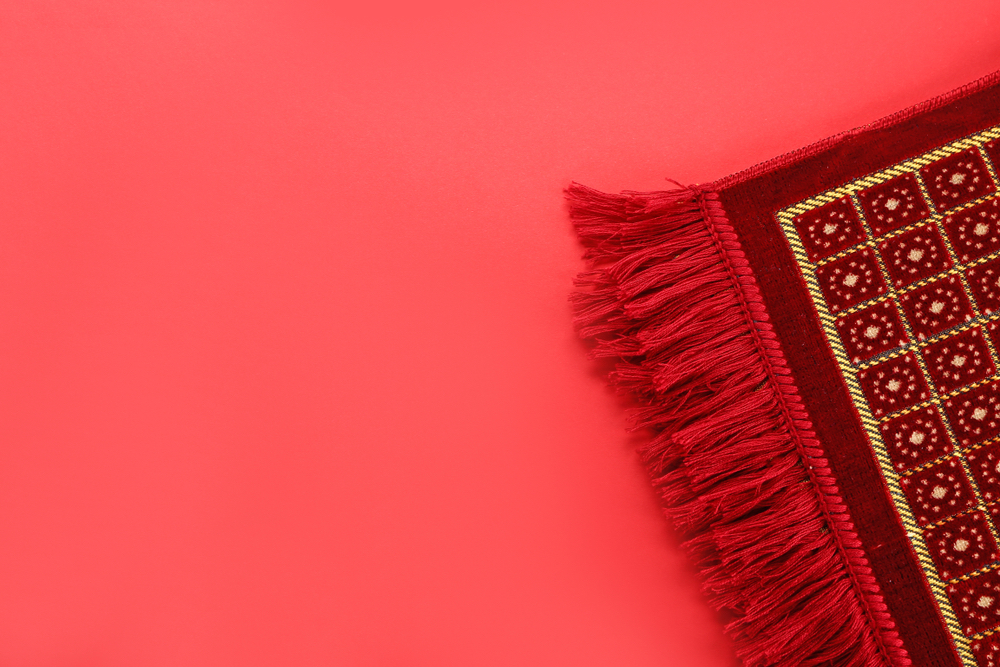SHEIN Stops Selling Sacred Muslim Prayer Mats as Decorative Rugs After Receiving Backlash from Activists

In response to opposition from impassioned activists, SHEIN has agreed to terminate the commercial sale of Muslim prayer mats.
The international fast fashion e-commerce platform is under attack for “religious appropriation.” Recently, Muslim activists lobbied against the company after discovering Muslim prayer mats being sold as decorative home decor. An outraged Muslim activist, Khadija Rizvi, revealed to Teen Vogue, “I scrolled down their website in the rugs section and came across these seven prayer mats sold as ‘tassel trim carpets.’ My response was complete anger…” Rizvi, a devout Muslim woman and activist, was shocked to discover sacred prayer mats, traditionally used to connect with God, being branded as “tassel trim carpets” and repurposed as coffee table rugs.
for all of you who order off of shein; they’re taking muslim clothing / prayer mats and labelling them as ‘tassel rugs’ as well as exploiting their workers and paying them less than minimum wage. they’re making money off of cultural clothing & traditions and its absolutely vile+ pic.twitter.com/bPkBD0fWvy
— neve ; (@HEATHERSGRlMES) July 5, 2020
She perceived this commercial sale of prayer rugs as grossly inappropriate, offensive, and undermining her religion. Some of the rugs being sold even displayed the Kaaba on them, a sacred structure situated in the center of Islam’s holiest site in Mecca. Others featured a mihrab design, which is a traditional symbol on prayer rugs, emblematic of a niche in the wall of a mosque that points to Mecca.

These symbols are not an aesthetic: They are religious designs with meaningful historical significance. Hiding these rugs under dusty furniture, spilling coffee on them nonchalantly, or stomping on them with dirty shoes is blatantly disrespectful and belittles the Muslim religion. The 24-year-old activist emphasized “We don’t wear our shoes on it. We put it in a clean place, a place for regular use where we connect with God.” Rizvi underscored the religious insensitivity of attempting to reap a profit from these sacred kneeling grounds used to appeal to God.
not Shein selling islamic prayer mats THAT HAVE THE KAABA ON THEM as decorative rugs and advertising them as greek fret carpets i’m angry and offended pic.twitter.com/UHw5RbyQ3K
— samiha (@pradastained) July 6, 2020
In an effort to expose this blatant religious insensitivity, Rizvi utilized her social media platforms to communicate her outrage. Her scathing post, directed at SHEIN, quickly went viral and Rizvi was met with massive support. Many other activists, such as American Muslim fashion influencer Nabela Noor, also expressed their disapproval. The religious inclusivity activist viewed Rizvi’s post and then proceeded to utilize her influential platform to reach out to her millions of loyal followers and share the unsettling news.
UPDATE with statement from @SHEIN_official.
I will continue the convo with their Head of Brand who I am in contact with + have been having a dialogue with on this.
Small wins towards more inclusion + diversity within brands & more respect for all communities as a result. pic.twitter.com/pZgxzmrKWT
— Nabela Noor (@Nabela) July 5, 2020
The public was quick to voice their disapproval.
DO NOT SUPPORT SHEIN. they’re disgusting & stealing prayer matts designs for their “carpets” to sell. pic.twitter.com/t87wl7i54N
— ella ‧₊˚ LIMBO ERA (@91CLBN) July 7, 2020
In response to public backlash, SHEIN has come forward and apologized for its religious insensitivity, or what it labeled as “highly offensive oversight.” The brand reached out to Noor and expressed remorse. The company said in a statement: “Since it was brought to our attention, we immediately removed the products from the site and asked the vendor to stop selling to others. We also formed a product review committee with staff from different cultures and religions so a mistake like this doesn’t happen again.”
It’s nice of Shein that they actually posted an apology and a statement. pic.twitter.com/KE5LalHIgt
— Fakhrun (@fnahar_) July 6, 2020
Many people are unmoved by SHEIN’s apology.
SheIn knew what they were doing when they sold “fringe rugs” idk im just having a hard time believing they were “unaware” of the religious aspect of it but ok thanks for apologizing
— tesiya🌿 (@tesiyalater) July 6, 2020
We are relieved to see SHEIN discontinue the commercial sale of these prayer mats. However, the theme of religious and cultural appropriation is still extremely relevant. Customers are quick to consume the culture of traditionally persecuted groups and often fail to engage with and actually respect the culture. Hopefully, this incident can serve as a fruitful learning experience and an example of the damaging effects of religious appropriation. We can hold companies such as SHEIN accountable and prevent future incidents like this from occurring.
I am a plucky Sophomore at Wesleyan University with a passion for writing, fashion, running, and extremely strong coffee—so strong that it would make a 6’5’’ WWE wrestler weep. I am a small person with a big personality, only intensified by the coffee, that seeps into both my bold street and writing style. I am currently based in the Washington, D.C. Metropolitan area and am excited to work for such an empowering, female-focused publication. During this trying time in history it is more important than ever for women to continue lifting each other up and spreading positive energy!




